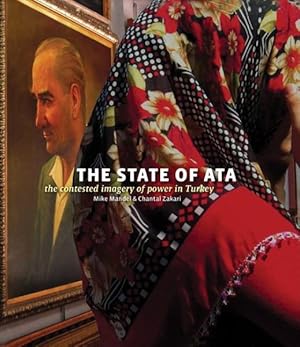Synopsis
The State of Ata addresses the social themes that define contemporary Turkey. Specifically examining the imagery of Mustafa Kemal Atatürk, the country's revolutionary leader after World War I, the volume interweaves photographs, interviews, artists' interventions and archival imagery. The result is a complex visual exploration of the uses of Atatürk's imagery and the way in which it functions in contemporary Turkish society as a perceived link to Western culture, and as a symbol in opposition to the rise of the Islamist political movement. Mike Mandel and Chantal Zakari conceived The State of Ata as a collection of books within a book―a photograph album, a volume of military portraits, a diary―and the result is a unique project that will appeal not only to those fascinated by Turkish culture, but also to anyone interested in the popular representations of cult historical figures.
Review
Two visual artists--one American, the other Turkish--traveled throughout Turkey over 12 years, driven by an image they found everywhere. Their new book, "The State of Ata: The Contested Imagery of Power in Turkey" (Eighteen Publications), is at once a travelogue, oral history, photo album, and meditation on Turkey's past, present, and future. Mike Mandel and Chantal Zakari, a married couple who both teach at the School of the Museum of Fine Arts in Boston, returned to Zakari's native Turkey to explore the legacy of Mustafa Kemal Atatürk, founder of the Republic of Turkey and its first president. His image hangs in schools and other public buildings through the country and virtually every town has a statue of him. Atatürk, who died in 1938, pushed Turkey to become a model Western state. The wearing of religious clothing in public was banned, women's legal rights were expanded, and the Arabic alphabet was dropped in favor of Latin characters. Yet a divide remains. In 1997 when Zakari held up a picture of Atatürk at a march of Islamists as a sign of her support for a secular society, she made front-page news all over Turkey. Mandel writes that some in the religious media accused Zakari of being an agent of the CIA seeking to divide the Turkish people. Others gave Zakari flowers for taking a stand. --Jan Gardner --Boston Sunday Globe, April 25, 2010
"About this title" may belong to another edition of this title.
